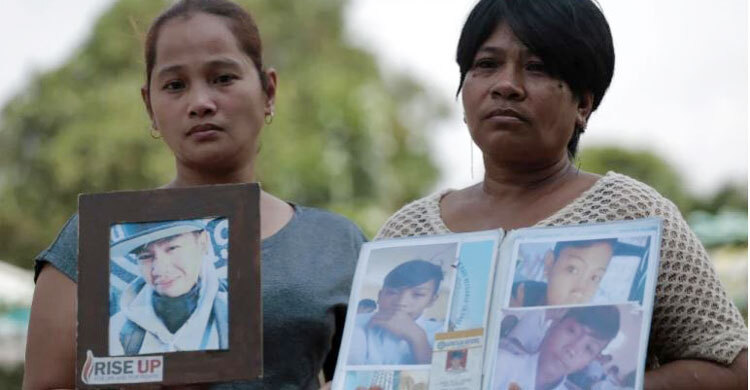ICC halts probe into Duterte’s ‘war on drugs’ after gov’t request

The International Criminal Court (ICC) has temporarily suspended an investigation into alleged rights abuses during the Philippines’s so-called “war on drugs” under President Rodrigo Duterte, in which thousands of people have been killed.
In September, the court based in The Hague, Netherlands, had given the green light for an official probe into the crackdown, a move hailed by families of victims and human rights groups.
Activists have accused authorities of carrying out summary executions that killed innocent people, including dozens of children. Police have denied the charges, claiming self-defence when suspects allegedly resisted arrest.
According to documents released on Friday, ICC prosecutor Karim Khan wrote that the Philippines had filed a deferral request on November 10 through its ambassador in the Netherlands.
“The prosecution has temporarily suspended its investigative activities while it assesses the scope and effect of the deferral request,” Khan said.
“The prosecution will, in the coming days, request additional information from the Philippines under rule 53 of the Rules of Procedure and Evidence,” he added.
“Such additional information is necessary for the prosecution to assess the scope and effect of the deferral request.”
In the letter, Ambassador Eduardo Malaya had requested the ICC for a deferral, saying his country was “keen on ensuring the successful prosecution of cases that have been filed, or may be filed in court, against erring Philippine National Police members and others within its jurisdiction”.
Malaya cited an ongoing domestic review of 52 drug raids carried out between 2016 and 2021, which signalled “the start of the (DOJ’s) review of the over 6,000 administrative cases” pending internal police investigation.
Thousands dead
A report from the United Nations last year found thousands of people had been killed in the campaign.
According to the most recent Philippine government data released in June, at least 6,117 suspected drug dealers had been killed in police encounters as of April 2021. However, human rights groups and activists said the number could be as high as 30,000.
A Philippine lawyers group called on the international court not to remove the glimmer of hope for the families of drug-war victims.
“We ask the ICC not to allow itself to be swayed by the claims now being made by the Duterte administration,” the National Union of People’s Lawyers, which represents some victims’ families, said in a statement.
The Philippine justice system is “extremely slow and unavailing to the majority of poor and unrepresented victims”, it said.
Centerlaw, a legal group that petitioned the Supreme Court to declare the drug war ‘unconstitutional’, said the details of the domestic investigation shared by Malaya showed its weakness.
“The fact that only 52 cases of the estimated 30,000 killed have been reviewed reveals that the government’s feigned compliance of international justice was paper-thin,” Centerlaw was quoted as saying in the Philippine Inquirer.
Duterte, who is in the last few months of a six-year term, pulled the Philippines out of the ICC in 2018 and has repeatedly said his government will not cooperate with any investigation. The court has jurisdiction to investigate crimes committed while the country was a member and up until 2019.
“There is no inconsistency with the request for suspension of action,” Salvador Panelo, Duterte’s chief legal counsel, told Reuters news agency on Saturday, without elaborating.
Earlier this month, the outgoing 76-year-old leader told the court to “just drop dead” and that he would not submit himself to its jurisdiction. Officials have also said that ICC investigators would not be permitted to enter the country to conduct the investigation.
During a UN address in September, the president defended his policy, and said those found to have “acted beyond bounds” of the Philippine law would be held accountable.
In its nearly two-decade existence, the ICC has convicted five men for war crimes and crimes against humanity. They are all African, from Democratic Republic of the Congo, Mali and Uganda.
Prominent Philippine human rights campaigner Carlos Conde said Duterte was trying to buy time and “claim complementarity” with the ICC.
“We’re confident the @IntlCrimCourt sees it for what it is: a ruse,” he wrote on Twitter after the delay was announced.
Source: Aljazeera and news agencies



